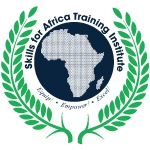|
|
Seminar On Sustainable Local Economic DevelopmentBy: Skills for Africa Training InstituteUnited Arab Emirates 13 - 17 May, 2024 5 days
USD 1,500 |
Venue: Dubai
Other Dates
| Venue | Date | Fee | |
|---|---|---|---|
| Nairobi, Kenya | 10 - 14 Jun, 2024 | USD1500 | |
| Nairobi, Kenya | 08 - 12 Jul, 2024 | USD1500 | |
| Nairobi, Kenya | 12 - 16 Aug, 2024 | USD1500 | |
| Nairobi, Kenya | 09 - 13 Sep, 2024 | USD1500 | |
| Kigali, Rwanda | 14 - 18 Oct, 2024 | USD2950 | |
| Mombasa, Kenya | 11 - 15 Nov, 2024 | USD1500 | |
| Nairobi, Kenya | 09 - 13 Dec, 2024 | USD1500 |
The focus of this course is on creating and managing multi-stakeholder processes that take place in the local and regional urban economy. Regions and localities are faced with two major trends in opposite directions: internationalization and decentralization. Internationalization exacerbates the interactions between the global and the local levels but operates selectively. It includes only those actors that participate in networks in which competitiveness drives constant transformations and restructuring. Decentralization is a means to cope with complexity and a reaction to growing demands for greater responsiveness and sustainability by citizens, clients, and consumers. The two trends have changed the ways in which the multiple stakeholders relate to each other in the local and regional economy.
Competition and cooperation are blended in the links between firms, between firms and state and non-state actors. The central concern for the governance of sustainable local economic development is to create synergies between the policies and interventions of business, state, and non-state or civic actors. These come together around specific opportunities for local economic development for small and medium-sized enterprises.
COURSE OBJECTIVES
By the end of the course the participant should be able to:
- Learn how can we get our local economy to grow in an inclusive way
- How do entrepreneurship and innovation affect local economy?
- Role of Entrepreneurs and small businesses as the backbone of local economy
- challenge of creating synergies between policies and their stakeholders
- Locality Development
DURATION
5 Days
WHO SHOULD ATTEND
The course is meant for government officials (municipal, provincial or national), representatives of private sector organizations and employees of NGOs that are dealing or will deal with SME development and/or Local Economic Development Policies.
COURSE CONTENT
Module 1: Introduction
In this module, the concept of Local Economic Development (LED) is introduced and its main theories are discussed. Focus on theories of systemic and territorial competitiveness; the role of institutions in economic development; Multi-stakeholder economic development: business system and embedding of geographical production networks.
This module includes the following sessions:
- Conceptualizing local economic development studies
- Why has LED become an issue? - Globalization, cohesion, and competitiveness
- Why has LED become an issue? - Decentralization and Local Economic Development
- Territorial competitiveness
- Theories of Competitiveness: Porter and Best
- Presentation assignment using the world bank database
- Constructing competitiveness from below: export base of an area
- Analyzing the competitiveness index: how is it composed and what does it mean?
Module 2: Small Enterprise and Entrepreneurship Development
The module focuses on the role of small and medium-sized enterprises, their role in the local economy and the constraints in their development. A distinction is made between enterprises, formal or informal, with growth potential and informal businesses that are survival oriented. The module focuses on strategies that support enterprise development: entrepreneurship development, incubator, and innovation systems.
- Entrepreneurship and enterprises development
- Incubators: operational and strategic services
- SME development
- Business Development Support
- Financial services
- Group presentations of SME support case studies: 4 cases of participants
Module 3: Clusters and value chains
This module focuses on the one hand on the local organization of small enterprises in clusters and the multi-stakeholder initiatives that can increase their efficiency and innovation capability. On the other hand, it examines the way in which small enterprises are inserted in external production networks or value chains and elaborates on multi-stakeholder interventions to strengthen their positioning in these chains.
- Cluster development
- SME cooperation in cluster development
- Stakeholder analysis of clusters
- Value chains 1: basic principles
- Value chains 2: standards and upgrading
- Value chains 3: agri-food systems
- Small producer upgrading in value chains: role of chain promoters
- Discuss field visit: cluster and value chain analysis
Module 4: Locality development
Based on the theory of territorial competitiveness, the question raised is how best to develop local economic policies with stakeholders market the city and strategically plan local economic development.
- Urban livelihood and LED promotion
- Urban livelihood and LED promotion
- Locality development and urban economic policies
- Local organizations for LED promotion
- Managing stakeholder fora for city economic development
- City marketing
- City marketing case studies
- Strategic planning for LED
GENERAL NOTES
- This course is delivered by our seasoned trainers who have vast experience as expert professionals in the respective fields of practice. The course is taught through a mix of practical activities, theory, group works and case studies.
- Training manuals and additional reference materials are provided to the participants.
- Upon successful completion of this course, participants will be issued with a certificate.
| Dubai | May 13 - 17 May, 2024 |
| Nairobi, Kenya | 10 - 14 Jun, 2024 |
| Nairobi, Kenya | 08 - 12 Jul, 2024 |
| Nairobi, Kenya | 12 - 16 Aug, 2024 |
| Nairobi, Kenya | 09 - 13 Sep, 2024 |
| Kigali, Rwanda | 14 - 18 Oct, 2024 |
| Mombasa, Kenya | 11 - 15 Nov, 2024 |
| Nairobi, Kenya | 09 - 13 Dec, 2024 |
Class Session: 08:00:am - 04:00:am
| USD 1,500.00 | |
| USD 1,500.00 | |
| USD 2,950.00 | |
| USD 4,500.00 |
Nixon Kahuria +254 702 249449
Related Courses
 Transformational Leadership and Governance Seminar
Transformational Leadership and Governance Seminar
5 days, 13 - 17 May, 2024
Skills for Africa Training Institute
 Monitoring & Evaluating For Human Rights Programmes
Monitoring & Evaluating For Human Rights Programmes
12 days, 13 - 24 May, 2024
Skills for Africa Training Institute
 Pension Fund Strategies, Governance, Regulation And Investment Seminar
Pension Fund Strategies, Governance, Regulation And Investment Seminar
5 days, 13 - 17 May, 2024
Skills for Africa Training Institute
 Workshop On Iso 14001 Environmental Management System (EMS)
Workshop On Iso 14001 Environmental Management System (EMS)
5 days, 13 - 17 May, 2024
Skills for Africa Training Institute


